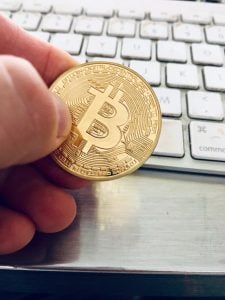 LocalBitcoins, one of the oldest and most widely-used Bitcoin (BTC) services, reveals that most of its customers are based in developing countries. These are places (such as Argentina and Venezuela) where Bitcoin is needed badly as a store of value because local fiat currencies have failed.
LocalBitcoins, one of the oldest and most widely-used Bitcoin (BTC) services, reveals that most of its customers are based in developing countries. These are places (such as Argentina and Venezuela) where Bitcoin is needed badly as a store of value because local fiat currencies have failed.
Sampo, a Bitcoin analyst, notes in a blog post published by LocalBitcoins that centralized cryptocurrency exchanges are more like traditional financial services and trading platforms. However, services such as LocalBitcoins are “more true to the original Bitcoin ethos since they provide peer-to-peer trading and are involved in as a third-party merely to provide the platform and to prevent malicious actors thanks to their escrow service and feedback system,” Sampo argues.
The Bitcoin analyst points out that even the Bitcoin whitepaper’s title indicates or suggests that it’s supposed to operate as a P2P electronic cash system. Sampo adds that the term peer-to-peer is essential to the “Bitcoin ethos,” because it’s included in the whitepaper’s title and also in the first and third sentences of the document.
Satoshi Nakamoto, the pseudonymous creator of Bitcoin, notes:
“A purely peer-to-peer version of electronic cash would allow online payments to be sent directly from one party to another without going through a financial institution. Digital signatures provide part of the solution, but the main benefits are lost if a trusted third party is still required to prevent double-spending. We propose a solution to the double-spending problem using a peer-to-peer network.”
According to Sampo, it’s important to note that Bitcoin wasn’t “created in a vacuum.” It was reportedly a part of several related developments of various types of virtual currencies. As confirmed by the crypto analyst, some of “the most famous Bitcoin predecessors were hashcash, b-money and bit gold.”
As Nakamoto had stated, Bitcoin was developed as a potential solution to the double-spending problem that was found in previous implementations of virtual currencies, and this issue was addressed using the P2P network.
But Sampo clarified that these networks were not really a novel invention because P2P filesharing had “become notorious at the turn of the millennium.” The Bitcoin analyst added that “it’s not far-fetched to claim that the peer-to-peer aspect was the last ingredient needed for a truly revolutionary digital currency.”
That’s why Nakamoto used a known or proven network structure and the best “qualities” of previous versions of electronic cash to develop or author the Bitcoin protocol, Sampo noted. The analyst added that returning or going back to peer-to-peer might not seem so revolutionary because trade in this manner is one of the oldest professions and it all started as a deal or transaction between two consenting parties. Sampo claims that Bitcoin “brings trade back to its oldest, and purest forms.”
Sampo added that P2P “sounds like a novel concept, but in fact it’s a term that describes the oldest form of trade between two individuals: bargaining.” Sampo also mentioned that “implementing a peer-to-peer network into a digital currency combined the best of both worlds: the simplicity of bargaining and the divisibility and omnipotence of digital currencies.”
Sampo continued:
“Bitcoin as a medium of exchange is similarly simplistic as the earliest forms of money such as sea shells. These mediums of exchange hold their value if both trade participants believe they do. Arguably Bitcoin also holds intrinsic value based on the cost of electricity required for the computational power that provides security for the network but in peer-to-peer trading the medium of exchange is actually irrelevant as long as the participants agree on the value of it.”
The Bitcoin analyst argues that P2P trading is “the purest form of trading” because it doesn’t require third-parties or intermediaries to complete the transaction.
Sampo pointed out that this is possible when the traders are physically present in the same location during the trade, however, the modern financial world needs global trading platforms, which requires digital technology and online platforms. These services are now being offered by platforms such as Paxful and LocalBitcoins (among others).
Established in 2012, LocalBitcoins aims to cater to the needs of people from different countries across the globe who want to exchange their local currencies into Bitcoins. LocalBitcoins and other P2P providers offer a platform for peer-to-peer trading. The actual trade on these platforms takes place directly between the parties (with the platform merely facilitating the trade by charging an escrow fee).
Sampo acknowledges that “the definite downside of peer-to-peer trading is the limited liquidity which affects Bitcoin prices on the platform.” Sampo added that “another downside to peer-to-peer trading on platforms such as LocalBitcoins is that if you decide to buy from a seller that uses the escrow service, there might be a delay in receiving the Bitcoin since the seller has to release it from escrow and this can, in worst cases, take up to hours or days.”

